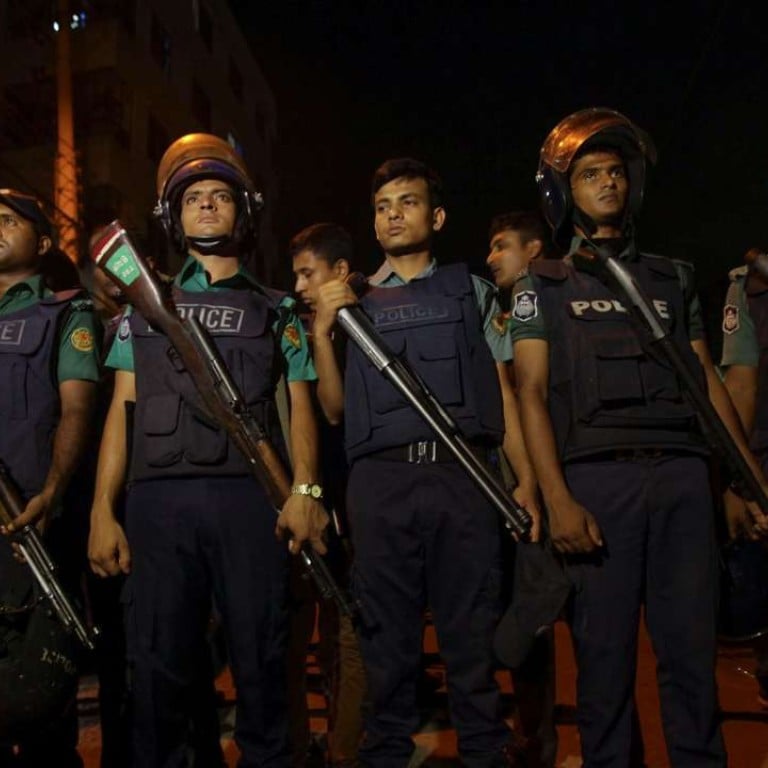
Bangladeshi police kill Islamist militant believed to be behind Dhaka cafe massacre
Bangladesh police in an overnight raid killed a man who allegedly trained the Islamist militants believed to have carried out the July hostage-taking in Dhaka’s diplomatic quarter that left 20 people dead including 17 foreigners, officials said on Saturday.
The raid follows increased international pressure on Bangladesh to crack down on militants who in recent years have staged violent attacks on diplomats, atheists, bloggers and other perceived enemies of Islam. Earlier this week, US Secretary of State John Kerry visited the Sunni-majority South Asian nation and urged authorities to do more in the fight against radicalism.
We had asked the landlord to inform us if the man comes back. He came back last night, and we raided to arrest him
Details of the Friday night raid in Dhaka’s Mirpur neighbourhood emerged slowly, and authorities only confirmed the killing of the man identified as Murad on Saturday morning.
They said the man, about 40-45 years old, also went by the names of Jahangir and Omar, but they are still trying to determine his full identity.
Police counterterrorism chief Monirul Islam said the man was killed in a gunbattle outside of his rented, fifth-floor apartment in a six-floor building after he had come to collect some belongings.
“We had asked the landlord to inform us if the man comes back. He came back last night, and we raided to arrest him,” Islam said. Instead, the man opened fire with a pistol on police, and then stabbed three officers with a knife as they surrounded him, Islam said.

Police said they could not confirm local media reports that the man was a sacked army major.
Islam described the man as a military commander of the banned group Jumatul Mujahedeen Bangladesh, or JMB, who trained fighters for the July 1 attack on the Holey Artisan Bakery in Dhaka’s Gulshan diplomatic zone, during which many of the foreign hostages were tortured and killed.
Islam said the man also trained JMB militants who attacked an Eid congregation outside Dhaka a few days later.
The man used to frequent a militant hideout at Narayanganj district where Tamim Chowdhury, a Bangladeshi-born Canadian and suspected mastermind of the July 1 atttack, was killed along with two associates in an August 27 police raid, Islam said. Chowdhury was described in propaganda outlets of the Islamic State group as the head of the group’s Bangladesh operations.
The Islamic State claimed responsibility for the attacks, saying the JMB fighters were working on their behalf. But Bangladesh authorities have rejected the claims, saying the jihadi group based in the Middle East has no presence in the country, and that its claims of responsibility are opportunistic grabs for attention. Instead, the government says its political opponents are backing the militants – a charge the opposition denies.
Some have accused Bangladesh’s secular government of turning a blind eye to the possibility of outsiders radicalising elements in the Muslim-majority nation.
Kerry said he did not believe the government “has its head in the sand”, but also pointed out that there was evidence of links between IS and extremists worldwide, including in Bangladesh.

